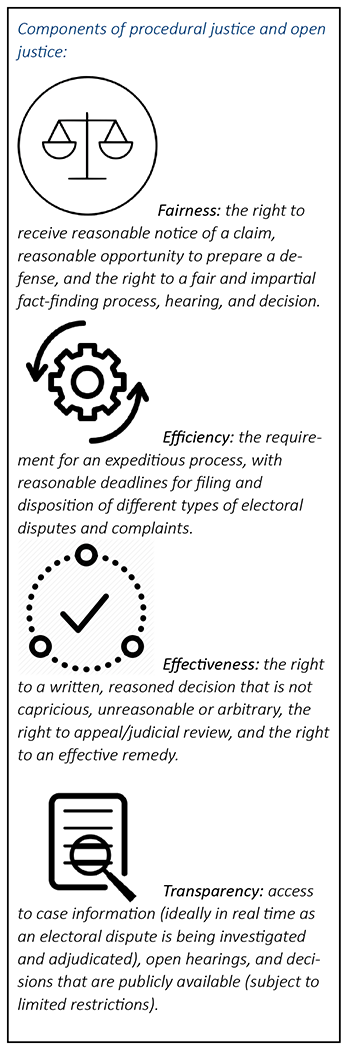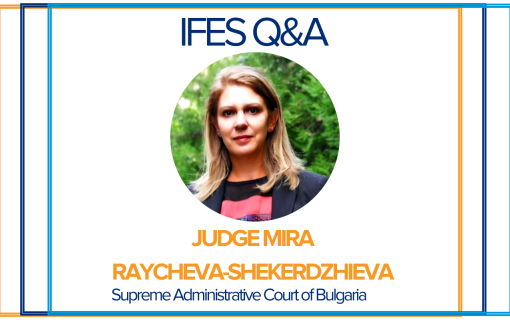Elections on Trial: The Effective Management of Election Disputes and Violations
Mechanisms for election dispute resolution (EDR) must increasingly withstand new forms of sophisticated political and electoral manipulation, most recently illustrated by the Cambridge Analytica whistleblower claims, but previously highlighted by the International Foundation for Electoral Systems (IFES) as a growing concern around the globe. Hence, the right to receive an effective remedy in the elections context, through the efficient and transparent administration of justice, has become even more fundamental. This involves both the protection of procedural justice (for individuals involved in an election dispute or accused of a violation) and the advancement of open justice (for the public at large, which has a stake in the legitimacy of the election process and outcome).
This new IFES research paper, Elections on Trial: The Effective Management of Election Disputes and Violations, outlines the fundamental principles for procedural justice and open justice in election cases. Significant attention is often paid to the independence and impartiality of judges or arbiters making decisions on election cases, while the mechanisms through which these cases are managed and publicized are often overlooked. To address this knowledge gap, IFES conducted preliminary comparative desk research on the case management of election dispute resolution in six countries: Mexico, Tunisia, Kenya, Macedonia, Kosovo, and the Philippines, to better understand how case management processes and platforms can help translate established procedure into actual practice. This research was made possible by the generous support of the American people through the United States Agency for International Development under the Global Elections and Political Transitions Program.
Institutions dealing with election disputes and violations face enormous challenges as election litigation increases, and as political actors find new ways to undermine the process or to simply ignore laws and rules in place. It can be an extremely difficult task to balance all the different components of procedural justice and open justice in a way that ultimately ensures a just and transparent process for all litigants. The paper presents comparative information illustrating these principles in practice, discusses case management tools and techniques, and provides recommendations for election management and EDR bodies seeking to strengthen the processes and platforms through which elections disputes and violations are resolved.












